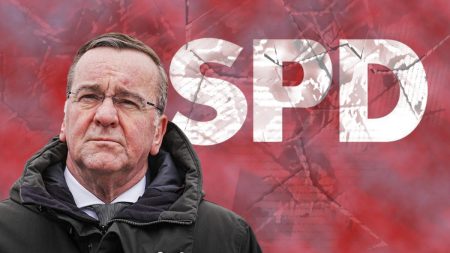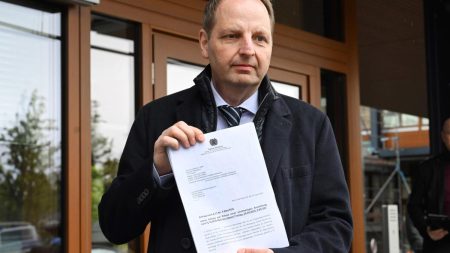Defense Minister Pistorius presented the reform of the German Bundeswehr, stating that the threat situation in Europe has escalated. The reform includes the establishment of a unified Operational Command, aimed at strengthening the defense capability of the Bundeswehr. Additionally, the forces will be reorganized along four branches with a common support area. Pistorius emphasized the importance of restructuring the Bundeswehr to be prepared for defense, war, and any potential NATO attacks.
Pistorius emphasized the need to make the Bundeswehr “war-ready” with a structural reform to strengthen the armed forces. The Bundeswehr will be organized along four branches and will receive a central command. The new structure includes the addition of a Cyber and Information Space Force, specialized in electronic warfare, cyber operations, reconnaissance, and safeguarding electronic infrastructure. Pistorius described this as a turning point for the Bundeswehr, aiming to optimize its structure for defense and wartime scenarios amidst the heightened threat situation in Europe.
The proposed reform is seen as a “signal of change” for the Bundeswehr, with key decisions expected to be implemented in the coming months. The Bundeswehr currently operates an overseas command in Schwielowsee for planning international missions and a Territorial Command in Berlin for national defense planning. The Operational Command will merge these functions to streamline operations. Pistorius’s focus on restoring war readiness reflects a broader strategy to address potential security threats and protect Germany’s NATO territory.
The Bundeswehr is set to receive a new command structure to enhance its war readiness, sparking resistance from some generals. WELT journalist Thorsten Jungholt supports the reform, emphasizing its necessity. Pistorius previously highlighted the importance of war readiness in the new Defense Policy Guidelines, directing General Inspector Carsten Breuer and a State Secretary to evaluate the Bundeswehr’s structures and command centers. The potential return of conscription remains a significant concern, as Pistorius explores models from Scandinavian countries to address personnel shortages and maintain the Bundeswehr’s operational capacity.
Pistorius acknowledged the possibility of reintroducing conscription and stated that the new structure could accommodate this change. In the absence of conscription, the revised command structure will remain in place. Pistorius aims to present potential models for conscription by April, underscoring the importance of adapting the Bundeswehr to evolving security challenges. The gradual decline in the number of soldiers highlights the urgency of addressing personnel shortages and enhancing the Bundeswehr’s readiness for future defense needs.















